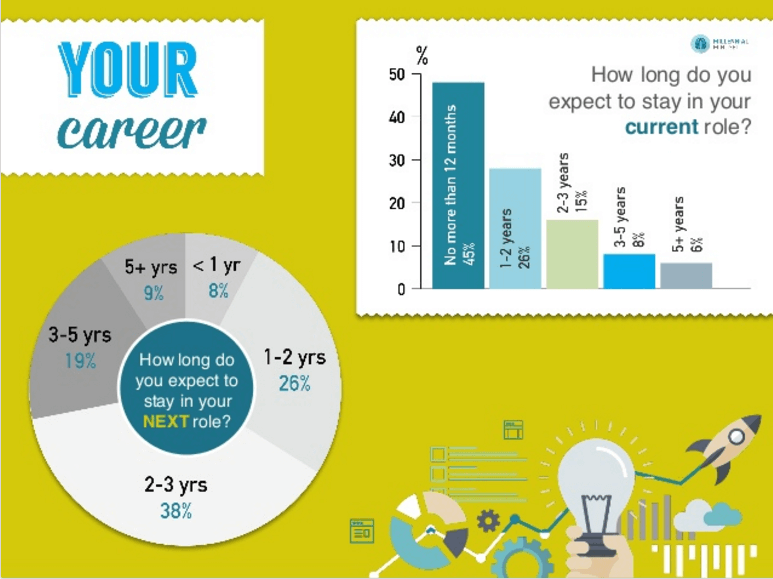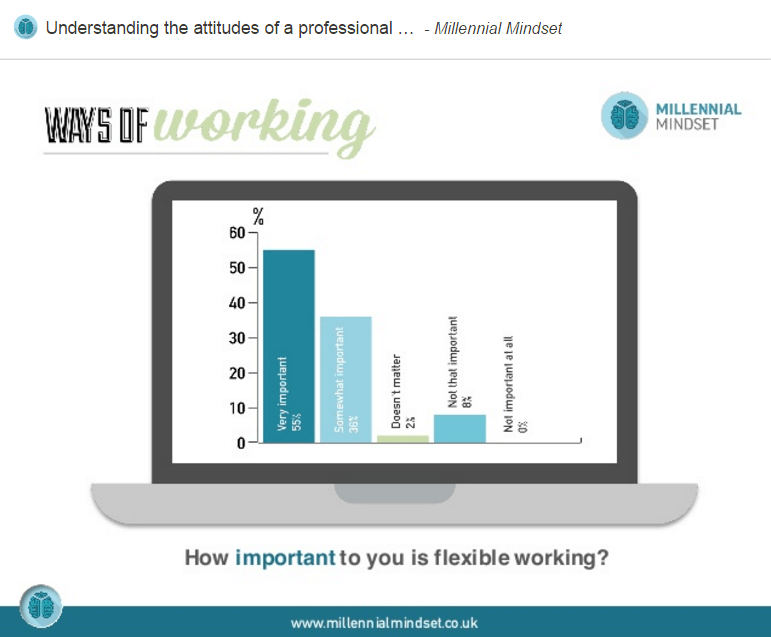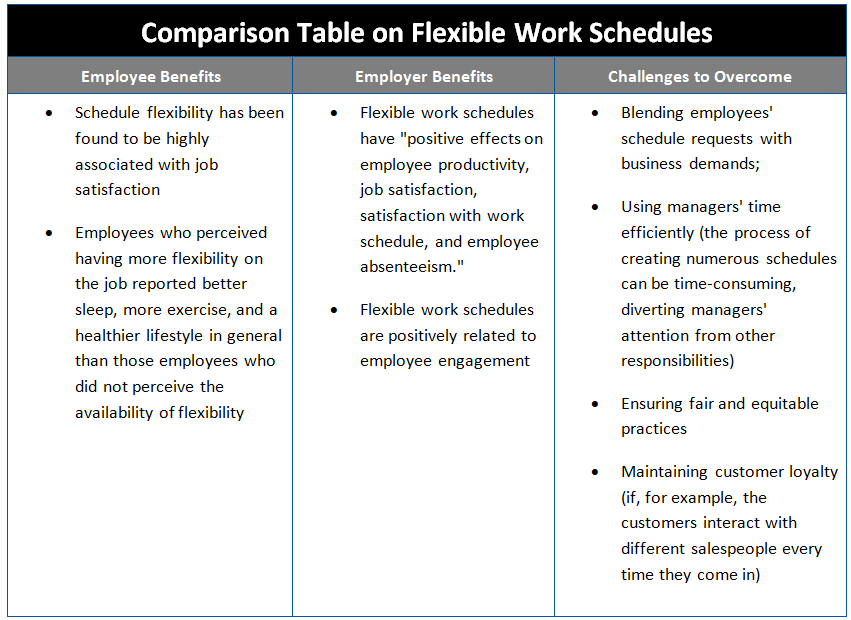Establish a Flexible Work Schedule to Address Millennial Needs
The workforce is going through a significant transformation – both in the US and across the globe. By 2020, employers will be tasked with attracting top talent that places a high value on whether or not employers offer a flexible work schedule. Are you ready for this change?
I just wrote an article that explored how organizations can best assess competitive risk, based on where they stand with their remote working policy. This is a pretty significant topic – one worthy of further discussion.
In my last post I quoted Mike Elgan, a contributing columnist at Computerworld. He recently wrote an article challenging his readers that the term “remote working” may soon fade away from our vocabulary. His rationale was based on the increasing impact Millennials are having on workplace demographics.
Millennials Impact on the Workforce
According to a recent PWC report, the millennial generation, born between 1980 and 2000, is now entering employment in vast numbers, to a point that will permanently change the workforce. Attracting the best of these Millennial workers will be critical to the future of every business, ultimately impacting their ability to grow and thrive, or perish and fail. Millennial career aspirations, attitudes about work, and knowledge of new technologies will define the culture of the 21st century workplace (source).
The PWC report explains that millennials matter because they are not only different from those that have gone before, but that they are also more numerous than any demographic group since the soon-to-retire Baby Boomer generation. By 2020, millennials will be 50% of the global workforce. That figure is forecast to grow to 75% globally by 2025.
These are truly shocking figures. A single demographic group quickly become the dominant part of the workforce. Those organizations that are not adequately prepared will be impacted in many ways, some of which might be a surprise:
- Hiring workers to fill open positions or grow the business will become increasingly more difficult and costly
- Employee turnover will likely increase – unexpectedly – costing much time and effort to try and understand and fix
- Finding new customers could potentially become more difficult, given the importance placed on mission statements and the vision of what companies stand for vis-a-vis the purchase process
The Millennial Mindset is an organization led by Adam Henderson, a prominent writer, speaker and subject matter expert on the Millennial workforce. He has published some very interesting research findings on his website.
The following infographic he prepared illustrates that almost 50% of the workforce will have an expectation that their current role will not last more than 12 months, before being promoted. Fortunately, expectations are extended for the second role.
This is a different set of expectations than what the Baby Boomer considered normal, so is likely to lead to potential conflict and misalignment with career expectations and human resources departments.

Source: Understanding the attitudes of a professional Millennial (Gen-Y) Workforce
Another interesting attribute of Millennial expectations is that of flexible work, which correlates directly with achieving the right work/life balance. Millennials see this as a very important job requirement. But, their employers have not been able to successfully deliver upon this promise. According to the PWC report, 28% said that the work/life balance was worse than they had expected before joining.
The Importance of a Flexible Work Schedule to Millennials
Here is where remote working comes into play. But, in the eyes of the Millennial, it isn’t that they all want to telework. Just the opposite. They want the choice to be able to work where and when they want, to help achieve a better work/life balance.
A better term to describe this need is “flexible” working. Adam Henderson commented on this topic in his article If you can't trust your employees to work flexibly, why hire them in the first place?
In his article he commented that 91% of the Millennials he surveyed said flexible working was important, and that 92% said they wanted the option to work from home. Note the importance of having the choice. Millennials are not saying they all want to work remotely from home. In fact, just the contrary … 66% said they would prefer to work more in the office than at home. No one wanted to work exclusively from home.
Below is another infographic that helps to visualize this concept (source). Just over 90% of Millennials surveyed said that it was “somewhat” or “very” important to have flexible working. Doing the math, this means that in just three years’ time, 45% of the workforce will place a significant importance on employers offering flexible working.

Source: Understanding the attitudes of a professional Millennial (Gen-Y) Workforce
What is a Flexible Work Schedule?
A flexible work schedule is an alternative to the traditional 9 to 5, 40-hour work week. It allows employees to vary their arrival and/or departure times. Under some policies, employees must work a prescribed number of hours a pay period and be present during a daily "core time." The Fair Labor Standards Act (FLSA) does not address flexible work schedules.
Alternative work arrangements such as flexible work schedules are a matter of agreement between the employer and the employee (or the employee's representative). The Department of Labor has conducted numerous surveys and published articles and reports on the subject.
Here are some examples of how a flexible work schedule can be seen as a significant employee benefit:
- A husband and wife working for the same employer enter into an arrangement to ensure their shifts are staggered so that they will have child-care coverage for their three children
- A worker who cares for an elderly mother during the evenings enters into an arrangement with the employer ensuring that he/she will not have to work the evening or overnight shift
- A worker may be authorized to swap a shift with a willing co-worker
- A worker with diabetes is allowed to set his/her own break schedule in order to ensure an opportunity to eat snacks and meals every three hours
- Workers may request scheduled time off in advance of schedules being prepared

Just as many companies shifted to a 40 hour work week, 9-5, based on worker demands, expect another shift to flexible scheduling over the next decade.
